Introduction
How To Prevent Rats From Eating Car Wires: Automobiles have become an indispensable part of our daily lives, providing us with convenience and mobility like never before. However, as our reliance on vehicles grows, so do the challenges that come with maintaining them. One such challenge that has plagued car owners and mechanics alike is the menace of rats hibernate chewing on car wires. The seemingly innocent creatures can cause substantial damage to a vehicle’s electrical system, leading to costly repairs and inconveniences. Fortunately, there are effective strategies to prevent rats from gnawing at your car’s wires, protecting both your investment and your peace of mind.
Rat-induced damage to car wiring is a widespread issue that can affect anyone, regardless of where they live or how diligently they maintain their vehicles. Rats are notorious for their gnawing habits, which are driven by their need to wear down their constantly growing teeth. Unfortunately, the electrical wiring within cars is a tempting target for these rodents, as the wires are often made from materials that rats find irresistible for sharpening their teeth. The consequences of rat-inflicted damage to car wires can be far-reaching. From malfunctioning electrical systems to the risk of fires, the hazards are not to be underestimated.
The financial burden of repairing such damage can be substantial, potentially draining your wallet and causing unwelcome stress. To mitigate these risks and safeguard your vehicle, it’s essential to understand the reasons behind rat wire-chewing tendencies and to adopt preventative measures. This will delve into the causes of rat-induced damage, various methods to deter rats from your car, and offer practical advice on protecting your valuable investment. Whether you live in an urban environment or a rural one, the threat of rats is ever-present.
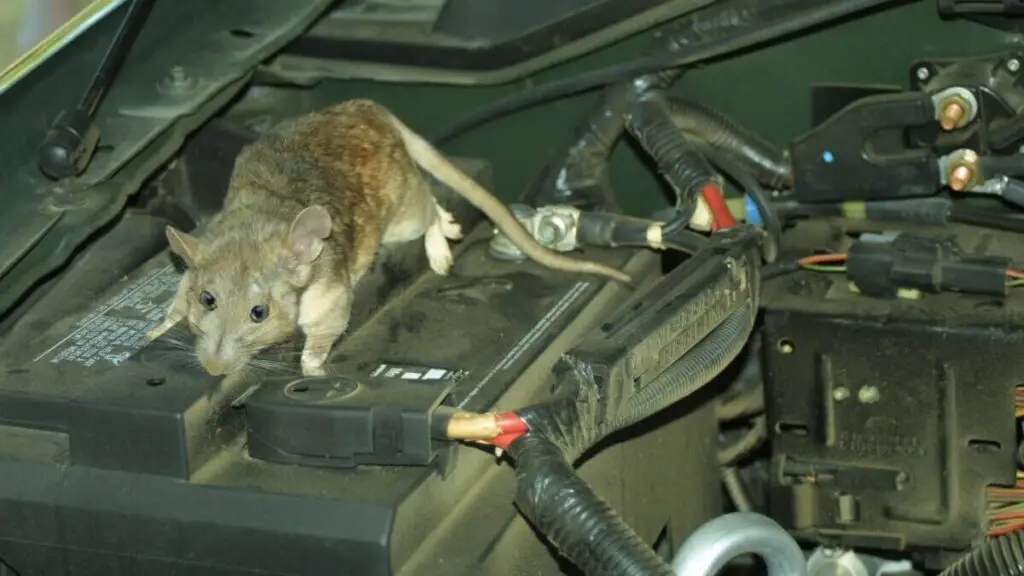
How do I stop rats from chewing wires?
Put plastic or steel covering on your wires. Keep your trees trimmed to prevent rats and squirrels from making their way onto your roof. Use traps/call an exterminator to get rid of mice and rats. Call an electrician to regularly check your wiring.
One of the first steps in rat prevention is to keep your surroundings clean and clutter-free. Rats are attracted to food sources and hiding spots, so by eliminating these, you can make your property less appealing to them. Keep food stored in airtight containers, clean up any crumbs or spills promptly, and organize storage areas to reduce hiding places.
Regularly inspect your property for potential entry points that rats could use to gain access. Seal cracks, gaps, and holes in walls, floors, and foundations with steel wool, wire mesh, or caulk. Rats are excellent climbers, so don’t forget to check for openings in your roof or attic as well.
These emit high-frequency sound waves that are unpleasant for rats but usually inaudible to humans. Place them near areas where rats might enter or frequent. Peppermint oil, cayenne pepper, or ammonia-soaked rags can act as natural deterrents. Apply them in areas where rats are a problem, but be cautious with strong odors indoors. Traditional snap traps or more humane live traps can be effective in capturing rats. Be sure to check and empty traps regularly.
Why do rats bite car wires?
Unfortunately, rodents chew on things for a far more practical reason: they need to keep their teeth trimmed. Chewing on car wires gets the spotlight because it’s an inconvenience to drivers and damages the vehicle. Rodents will chew on just about anything, including plastic, to keep their teeth trimmed.
One primary reason rats bite car wires is to maintain their teeth. Rats have continuously growing incisors, and they need to gnaw on objects regularly to wear them down. The tough and resilient insulation around car wires the ideal texture for this purpose. Chewing on wires helps rodents prevent their teeth from becoming overgrown, which is crucial for their survival.
The insulation material used in car wires often contains soy-based compounds and other organic components. These materials can be attractive to rats due to their scent and taste. Rats may mistakenly perceive wire insulation as food, leading them to bite into it, causing extensive damage to the vehicle’s electrical system.
Car engines and undercarriages offer warmth and shelter to rats, especially during colder months. Seeking refuge in these areas rats with a secure environment for breeding and nesting. While in these hidden spaces, they may come into contact with car wires and instinctively gnaw on them.
What smell does rat hate?
You can repel rats from your home and garden with scents they dislike, such as clover, garlic, onion, hot peppers containing capsaicin, house ammonia, used coffee grounds, peppermint, eucalyptus, predator (cat) scent, white vinegar, and citronella oil.
Soak cotton balls in peppermint oil and place them in areas where rats are active or likely to enter. You can also mix a few drops of peppermint oil with water and spray it in rat-prone areas, but be cautious, as it can be quite potent. Eucalyptus oil has a similar effect on rats as peppermint oil due to its strong, pungent aroma.
Soak cotton balls in eucalyptus oil and strategically place them in areas frequented by rats. Alternatively, add a few drops of eucalyptus oil to a bowl of water and use it as a spray in rat-infested areas. Rats are sensitive to the strong, pungent smell of ammonia, which makes it an effective repellent. Soak rags or cotton balls in ammonia and place them near rat entry points or infested areas.
Be cautious when using ammonia indoors, as the smell can be overpowering for humans as well. Ensure proper ventilation. Cayenne pepper contains capsaicin, a compound that irritates a rat’s sensitive nose and mucous membranes. Sprinkle cayenne pepper in areas where rats are active, such as entryways or around the garden.
Is it safe to use naphthalene balls in car?
Use naphthalene balls and keep it in different places in your car. You can also spray diluted phenyl in your car. The pungent odor keeps the rodents away. Get your engine bay thoroughly cleaned and then sprinkle the area with the worst quality of coarse chewing tobacco.
If you have children or pets, using naphthalene balls in your car can pose risks. Children and pets may be more vulnerable to the toxic effects of naphthalene because of their smaller size and different metabolism. They may be more likely to come into contact with the balls or ingest them accidentally.
Naphthalene balls have a strong and distinctive odor. While some people find the scent unpleasant, others may experience headaches or discomfort when exposed to it for extended periods. The odor can also permeate the interior of your car, making it less enjoyable to drive or ride in.
In some regions, the use of naphthalene balls in vehicles may be subject to legal restrictions or regulations due to safety and environmental concerns. It’s check local laws and regulations before using these products in your car.
What do rats hate to chew on?
According to a pest expert in Cornelius, NC, steel wool is effective since rodents cannot chew the wire, and at the same time it annoys their teeth. If you have it, surely, those pesky pests will be gone, and you will be able to enjoy your home peacefully.
Ceramic and porcelain materials are another option that rats tend to avoid. These materials are not conducive to their gnawing habits, making them suitable for protecting certain objects or areas from rat damage.
There are materials designed specifically to repel rats and discourage their chewing behavior. These may be infused with bittering agents or other substances that rats find unpalatable. Rat-repellent materials can be used in various applications, such as wires, cables, and automotive components.
Rats are generally averse to certain natural scents and flavors. You can use these to your advantage by applying natural repellents such as peppermint oil, cayenne pepper, or ammonia-soaked rags to materials that rats might otherwise chew. The strong smells and tastes will deter them.
What happens if a rat chewed through a wire?
When a roof rat chews on your wires, they remove the protective insulation that prevents the wire from being dangerous. Most fires happen because of electrical issues and many electrical issues arise from rodents that chew on them.
One of the most immediate and noticeable consequences of a rat chewing through a wire is electrical malfunction. When a wire’s insulation is compromised, the exposed conductive material can come into contact with other wires or surfaces, causing short circuits, sparks, and electrical fires. Depending on the location and severity of the damage, you may experience a loss of power, flickering lights, or complete equipment failure.
Perhaps the most severe consequence of rat-induced wire damage is the increased risk of electrical fires. When rodents chew through wires, they can expose live electrical components, leading to sparks and arcing. These sparks can ignite nearby flammable materials, such as insulation or wood, potentially causing a fire. Electrical fires can be rapid and devastating, putting lives and property at risk.
Repairing wire damage caused by rats can be costly. The extent of the damage and the complexity of the electrical system will determine the repair expenses. In many cases, it may be necessary to replace entire sections of wiring or components, which can add up to a substantial repair bill.
How do you rodent proof wires?
In order to keep their teeth at a manageable length, mice and rats chew constantly. Wires are particularly attractive to rodents, as their round shape is easy to hold onto as they gnaw on them. If rats and mice show up on your property, try placing hard coverings like plastic or steel sleeves over top of your wires.
Some specialty tapes are designed to deter rodents due to their taste or texture. These tapes can be wrapped around wiring harnesses, cables, or other vulnerable areas to discourage chewing. Ensure that the tape is securely fastened and covers the entire exposed section of the wires.
There are materials available that are designed to repel rats and prevent them from chewing on wires. These materials may be infused with bittering agents or other substances that rats find unpalatable. You can use these specifically designed materials to replace or cover existing wires.
Rats are generally averse to certain natural scents and flavors. You can use natural repellents to deter rodents from approaching wires. Apply substances like peppermint oil, cayenne pepper, or ammonia-soaked rags to wires and surrounding areas. Be sure to refresh these repellents periodically, as their effectiveness may diminish over time.
How do you make homemade rat repellent for cars?
Essential oils that may be helpful in repelling rats and mice include peppermint oil, lemon oil, citronella oil, and eucalyptus oil. You can make an essential oil spray by mixing 2 teaspoons of oil with 1 cup of water or rubbing alcohol in a spray bottle. Then spray it anywhere you see traces of rodents.
Place mothballs in areas where rats may enter your car, such as the engine compartment or the interior. Be cautious with mothballs, as they contain chemicals that can be harmful to humans and pets. Keep them out of reach.
Some people have reported success using fabric softener sheets as a rat repellent. Simply place these sheets in your car’s interior and engine compartment. The scent of the fabric softener may deter rats from entering.
Maintaining a clean car is an essential part of rat prevention. Remove food debris, trash, and clutter regularly, as these can attract rats. Keep your car’s interior and exterior clean to minimize potential hiding spots for rodents.
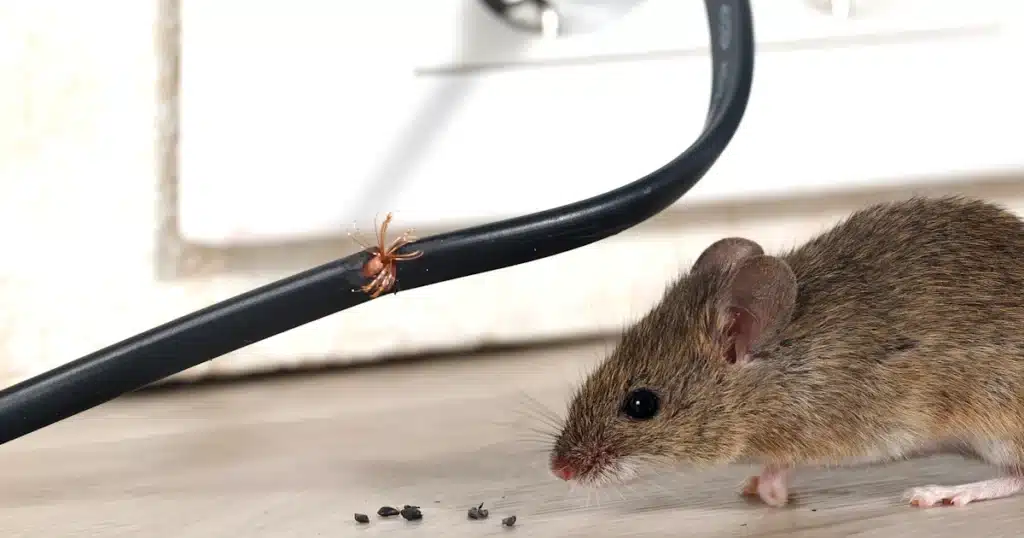
Conclusion
In the battle against rats chewing on car wires, and prevention are your greatest allies. We’ve explored the various reasons behind this peculiar habit, and we’ve uncovered a multitude of strategies to safeguard your vehicle from these unwanted intruders. As we wrap up our discussion on how to prevent rats from eating car wires, let’s recap the key takeaways and emphasize the proactive measures. First and foremost, understanding the driving factors behind rat wire-chewing is crucial. Rats prevent, driven by their natural instinct to keep their teeth in check, seek out materials that can help them wear down their ever-growing incisors. Unfortunately, the insulation around car wires has the perfect consistency and taste to satisfy this need.
By recognizing this behavior, car owners can appreciate the urgency of taking preventative action. Our exploration has revealed a range of effective prevention strategies, each designed to create an unwelcome environment for rats and discourage their presence near your vehicle. Implementing these measures not only safeguards your investment but also contributes to a safer and more reliable driving experience. One of the most straightforward preventive steps is maintaining a clean and clutter-free garage or parking area. Rats thrive in hidden and cluttered spaces, so keeping your car’s surroundings well-organized and free of debris is an essential starting point.
Regularly inspecting your vehicle’s wiring harness for signs of damage or intrusion is another essential task, as catching the issue early can prevent further destruction. We also value the use of rat deterrents, such as ultrasonic devices, natural repellents like peppermint oil, and rat traps. Employing a combination of these methods can significantly reduce the likelihood of rats getting near your car in the first place. These barriers create an layer of protection that makes it difficult for rodents to access their desired chewing material.

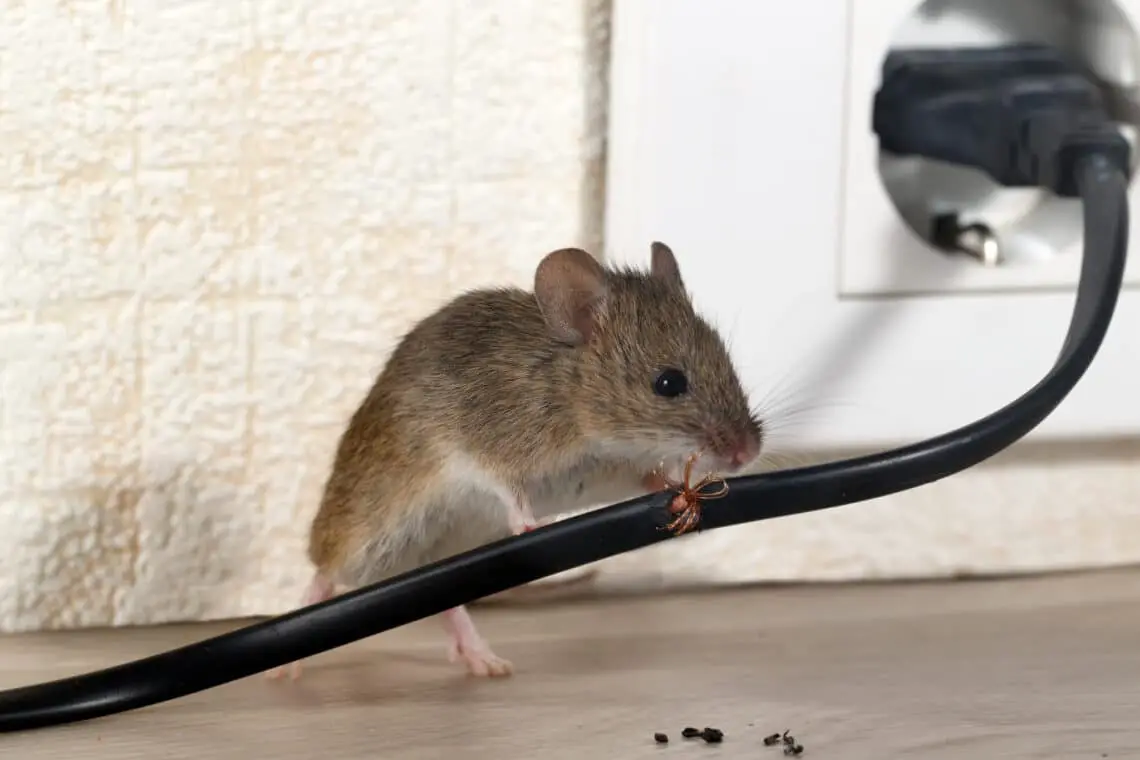
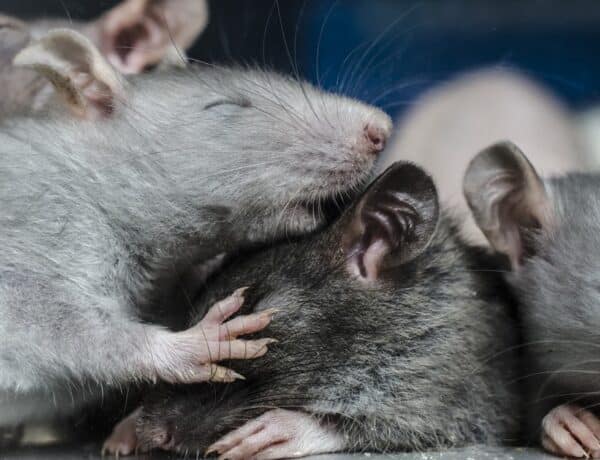
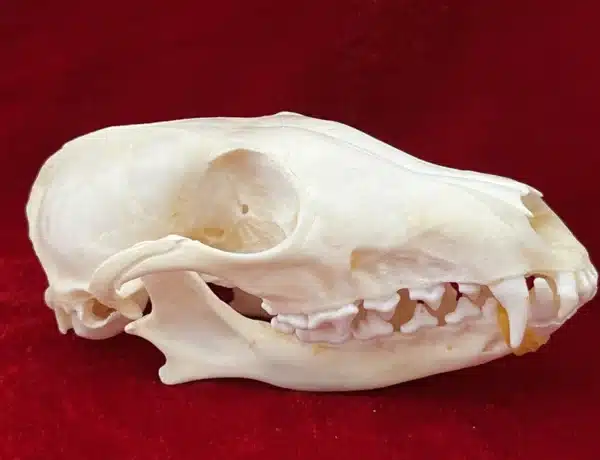
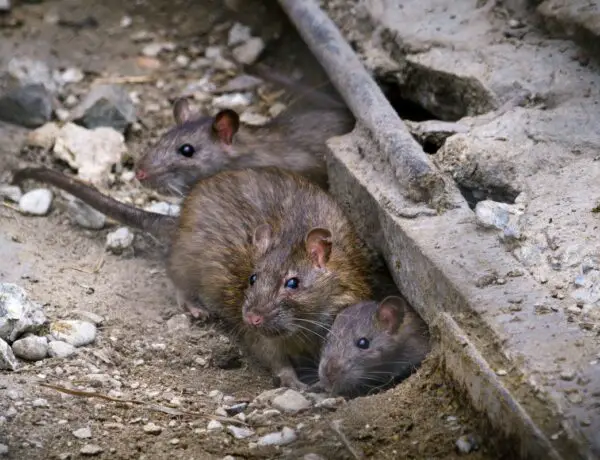
No Comments